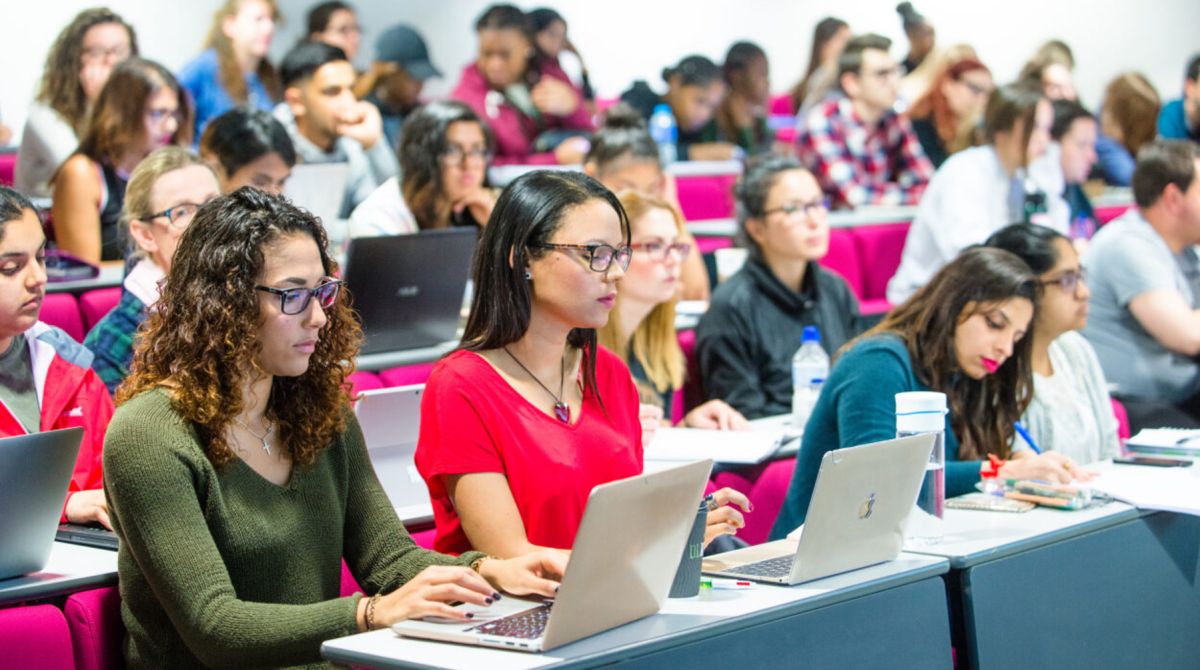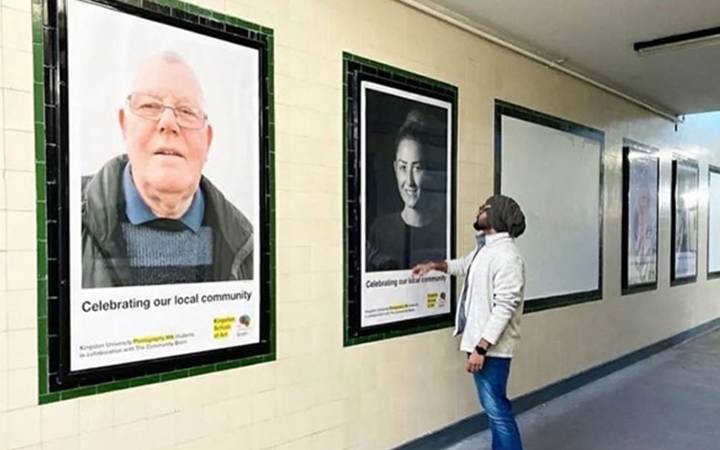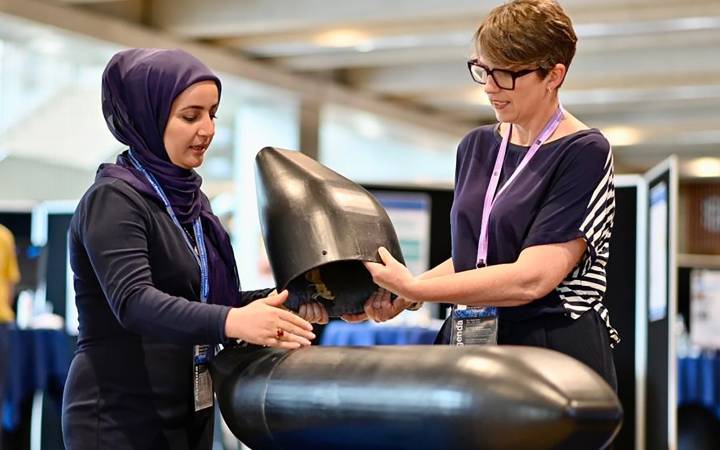Kingston University rolls out first phase of sector-leading Future Skills programme across all courses, preparing students for rapidly evolving world of work
Posted Thursday 7 September 2023

New students enrolling at Kingston University this autumn are set to be the first to benefit from an innovative model of education being introduced to equip them with the future-proofed skills needed for career success.
All first-year undergraduates will participate in Navigate modules, being rolled out from September as the University marks the launch of its new Future Skills programme. Students will complete Navigate as an integral part of their courses, before progressing on to further expand their skills and knowledge through Explore and Apply modules during the second and third years of their degrees.
The development comes as part of the University's drive to ensure every student acquires the skills most valued by employers, including problem solving, critical thinking, communication and creativity.
The programme builds on research undertaken as part of the University's Future Skills campaign, which has been highlighting the economic imperative of skills for innovation since its inception in 2021. Since that time, the campaign has gone from strength to strength, garnering widespread support from business and industry leaders, government policy-makers, politicians and peers.
Informed by campaign research, which last year included a YouGov survey of more than 2,000 major businesses and 1,000 students, the University has identified nine attributes it will instil in its future graduates – creative problem solving, digital competency, being enterprising, having a questioning mindset, adaptability, empathy, collaboration, resilience and self-awareness. It is aiming to ensure all students are able to demonstrate the full set of attributes in a wide variety of contexts by the time they complete their undergraduate degrees, boosting their employability and their ability to make a meaningful contribution in their workplace and community.
"A key focus of the Navigate modules being launched this year is providing our students with the platform to go on and succeed in their future careers and ensuring that the graduate attributes they develop along the way are recognised through academic credit," the University's Director of Student Development and Graduate Success, Ali Orr, said. "As evidenced in the University's Future Skills research findings, employers really value the higher-level skills our students gain. These can sometimes be viewed as softer skills but are, in reality, the hardest to develop.
"Ensuring our graduates are able to call on this broader skillset to meet the changing needs of employers is absolutely vital, particularly as they prepare to enter a rapidly evolving world of work where many of the jobs they will eventually hold don't yet exist."
The Navigate modules will offer students self-diagnostic workshops to help them better understand the skills they currently possess, coupled with other learning opportunities highlighting the importance of their personal and professional development. "This self-assessment forms the basis of a holistic and student-centred approach to their transition into university learning and will enable them to convey the key attributes they will develop throughout their learning journey," Future Skills Employability Manager Annie Yonkers explained.

The programme recognised that students developed skills, both during their time at university and outside their courses, Ms Yonkers said. Many worked in part-time jobs alongside their studies, while others had caring or other types of family responsibilities. "The Future Skills journey recognises that, while our students' lives exist beyond the curriculum, we can reflect those aspects of their lives and their development within the curriculum. This is a way for our students to really experience enriching opportunities within and beyond the University, through which they'll get academic recognition.
"Whether they want to start a business or go into other forms of employment, their ability to advocate for themselves and articulate with confidence is a key part of what we're seeking to embed and will make them sought after by employers when they graduate."
As they progress on to the Explore and Apply phases of the three-year programme, students will be able to personalise their learning further, honing in on the particular skills they want to develop.
Engaging with employers would also be a key part of the opportunities provided through the Future Skills programme, Mr Orr said. Students would have the chance to take part in assessment centre simulations and graduate expos, as well as live projects in which they could showcase solutions and products to businesses.
Up until now, students had often seen academic development and wider development as separate elements. Navigate and the wider Future Skills programme offered a way to change that perception, he added. "This work is very much about ensuring the graduate attributes our students are developing are recognised through academic credit and provide students with the platform to go on and succeed in their future careers," he said. "Personal and professional development should be emphasised within the curriculum and shouldn't just be an add-on. Future Skills education should be a fundamental part of every degree programme and, at Kingston University, we are leading the way in making that happen."
The University-wide roll out of Future Skills, which is firmly embedded at the heart of its visionary Town House Strategy, follows a successful pilot of the Navigate programme last year.
- Find out more about the University's Town House Strategy and its Future Skills campaign.
Contact us
General enquiries:
Journalists only:
- Communications team
Tel: +44 (0)20 8417 3034
Email us



